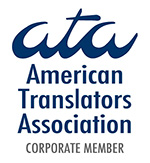Are you preparing to launch your website in a new language?
Or are you a translator whose client has just asked you to translate keywords?
In either of these two situations, you might have heard that translating keywords is a much more labor-intensive process than it might first appear. You definitely can’t just translate each keyword and be done with it.
And you definitely, definitely, can’t just plug them into GoogleTranslate.
But what makes keyword research so unique? How can you translate your keywords, in order to launch a successful international or multilingual SEO strategy?
Here is our short guide.
.
What Are Keywords?
If you are completely new to the world of keywords and SEO, we’ll give you a quick intro.
Keywords are the words that website visitors search for when looking for information about a product or a service.
For example, if I’m looking for bubble tea in Bangkok, I might search for “bubble tea Bangkok” in Google.
If a business wants to optimize their website content to be more easily found in Google or another search engine, they implement SEO (Search Engine Optimization) strategy.
SEO is a long and complicated process, one SMALL part of which involves keyword research and keyword translation (for multilingual websites).
However this small part makes a huge difference in the success of a website. In fact, if a business focuses only on keyword research, they can still make huge improvements to their website ranking and success.
For that reason, learning how to hire or provide keyword translation and keyword research services is a very valuable skill – and one that does not take nearly as long as learning SEO!
.
Why Can’t You Just Translate Keywords?
A successful keyword is not only tied to language – it is tied to culture and geography as well.
If I run an e-commerce website selling clothes in multiple countries, and hand my translator a list of clothing-related keywords to translate for my new Singapore website, some of those keywords will probably be simple enough to translate.
But what about words like “parka”?
You could translate “parka” into Mandarin Chinese, for sure, but do you really want to be selling parkas in steamy Singapore?
Or how about translating the words “summer vacation” for your new Korean website, selling travel packages.
You can easily translate summer vacation into Korean. But Korea doesn’t have summer vacation – so this might not be the most compelling concept to translate if you want to sell family vacation packages.
Finally, there are subregional preferences for all kinds of terms – translators are well aware of this! The word for “avocado” is “palta” in Peru, “aguacate” in Spain, but “pagua” in Cuba. If you use the wrong term on your Peruvian website, your customers might never find you!
That’s why keyword translators MUST also be keyword researchers. While they translate, they must use their own cultural knowledge (as well as tools available on the internet) to evaluate the efficacy of all translated keywords.
.
Why Should Translators Learn to Offer Keyword Translation and Research Services?
Translators are already optimally positioned to provide this service: they are familiar with the nuances of translation, and they understand the ramifications of cultural differences. They are also already great researchers!
Keyword research does involve learning a few new skills and tools. You’ll want to learn how to evaluate traffic, keyword difficulty, and clickthrough rates, for example.
However, this skill doesn’t actually take that long to learn – as we mentioned above, it is only a small part of SEO. You don’t need to be an expert SEO specialist in order to offer keyword translation and international keyword research!
Are you interested in learning how to offer multilingual keyword services?
Check out our short online course, International Keyword Research for Translators.




Leave A Comment